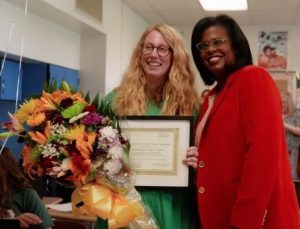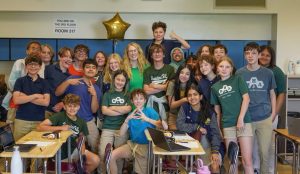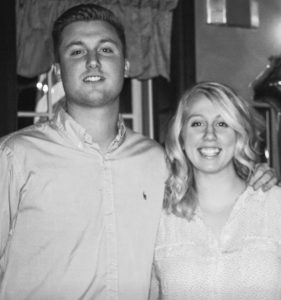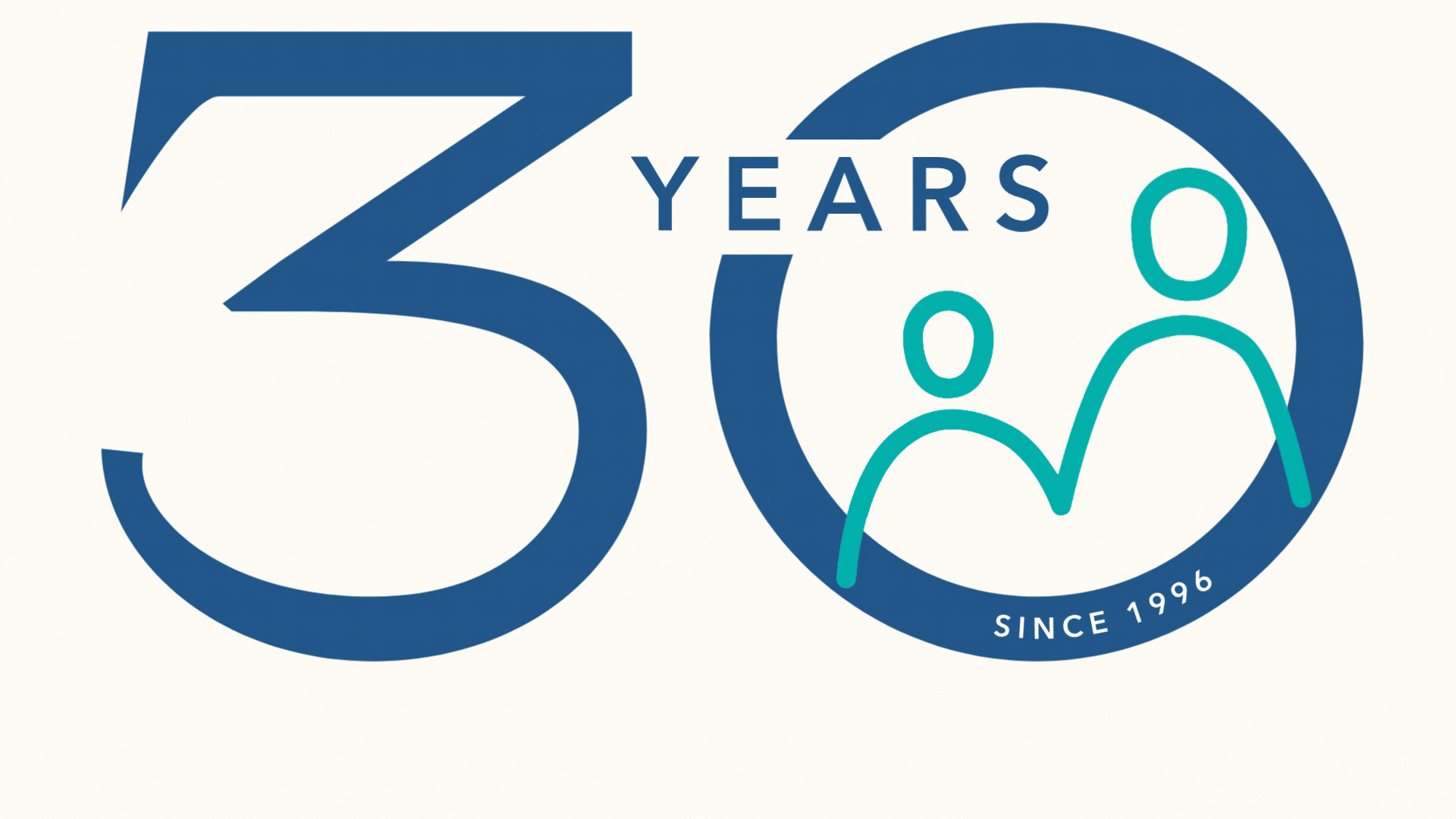 May is Children’s Mental Health Month. We asked Kat Locke-Jones,7th grade English Language Arts teacher at Hampstead Hill Academy, part of the Baltimore Curriculum Project’s (BCP) network of neighborhood conversion charter schools, to share her story as a mental health advocate in her classroom and across the Mid-Atlantic. In 2018, following the suicide of her younger brother Sean, her family created SL24: UnLocke the Light foundation, a nonprofit dedicated to supporting and educating students and communities on depression, anxiety, and suicide.
May is Children’s Mental Health Month. We asked Kat Locke-Jones,7th grade English Language Arts teacher at Hampstead Hill Academy, part of the Baltimore Curriculum Project’s (BCP) network of neighborhood conversion charter schools, to share her story as a mental health advocate in her classroom and across the Mid-Atlantic. In 2018, following the suicide of her younger brother Sean, her family created SL24: UnLocke the Light foundation, a nonprofit dedicated to supporting and educating students and communities on depression, anxiety, and suicide.
We talked with Kat, who is the 2024 Baltimore City Teacher of the Year, about her family’s story and how her passion for supporting her students inspires her passion as a mental health advocate.
In 2018, I read Parker Palmer’s The Courage to Teach. In his book, he mentions, “Teaching, like any human activity, emerges from one’s inwardness, for better or worse. As I teach, I project the condition of my soul onto my students, my subject, and our way of being together.”
 I’m not sure what the condition of “my soul” was before 2018, but I do know that my life was forever changed and altered after the death of my younger brother, Sean. Sean was a fun, popular kid like so many of our students. He was homecoming king, a Division I athlete, and one of the brightest lights I’ve ever seen. In July 2018, Sean died by suicide just days before his 24th birthday, losing his battle with depression.
I’m not sure what the condition of “my soul” was before 2018, but I do know that my life was forever changed and altered after the death of my younger brother, Sean. Sean was a fun, popular kid like so many of our students. He was homecoming king, a Division I athlete, and one of the brightest lights I’ve ever seen. In July 2018, Sean died by suicide just days before his 24th birthday, losing his battle with depression.
In fall 2018, I found a shift in my thoughts as an educator. While I still held students to high academic expectations, my mind kept shifting to the invisible backpacks that our students carry daily into our classrooms with their trauma and the heaviness that comes with it.
Sean didn’t feel comfortable asking for help because of the stigma surrounding mental health, especially for young men and athletes. As his sister and a teacher, I committed to spending my time in room 317 [at Hampstead Hill Academy], creating not just a safe space, but a brave space for students to tell their own stories.
 While a safe space is a classroom free of bias and conflict, I knew that wasn’t enough for my students. I wanted to create a classroom that was also a brave space, teaching students how to navigate conflict and empowering them to tell their stories while acknowledging race, power, and privilege.
While a safe space is a classroom free of bias and conflict, I knew that wasn’t enough for my students. I wanted to create a classroom that was also a brave space, teaching students how to navigate conflict and empowering them to tell their stories while acknowledging race, power, and privilege.
I think Sean felt like he didn’t have the words to express how he was feeling. No
one taught him how to say, “I’m struggling” or “I’m sad and that’s okay.” As an English teacher, my job is literally to teach students how to tell their stories. Am I teaching them to tell their whole stories, their authentic stories, their vulnerable stories?
Giving Older Students Tools for Better Mental Health
 As parents and teachers, we teach children how to sound out vowels, brush their teeth, and even dribble a basketball. We also read our young children books about emotions and how to tell when someone is sad or happy.
As parents and teachers, we teach children how to sound out vowels, brush their teeth, and even dribble a basketball. We also read our young children books about emotions and how to tell when someone is sad or happy.
But around ages 11-12, those conversations sometimes stop. A subject that seems much too heavy when matched with a world of standardized tests and fighting battles over the proper use of the semicolon. I get it. However, the conversation about mental health inside classrooms is important. Our students don’t drop their mental health backpacks filled with anxiety or depression outside our classrooms before they walk in. Our students carry their trauma, hopes, fears, and coping mechanisms with them, whether they have a pencil or not in their hands.
At Hampstead Hill and across the BCP schools, we already have a great foundation with Restorative Practices. If we view our work with Restorative Practices as the first step, our next conversation should be teaching students how to identify the root of their feelings.
The Kevin Love Fund curriculum is a great partner to our work at BCP. The completely free curriculum was created by Kevin Love, is an NBA player who opened up seeing a therapist for several months following a panic attack during a game in November 2017. In a first-person article in The Player’s Tribune in March 2018 entitled, “Everyone Is Going Through Something,” Love wrote: “Mental health is an invisible thing, but it touches all of us at some point or another.”
The curriculum infuses mental health with brain science and art. Students write poems, design graphic novels, curate playlists, and create protest art—things that make their feelings so much more accessible to them. It focuses on the power of vulnerability, asking teachers to model their own journeys to create community and connection inside their classroom.
Light Outside the Classroom
In memory of my brother, Sean, and all who struggle with depression and anxiety we created the SL24: UnLocke the Light foundation which is rooted in educating, assisting, and supporting students between the ages of 14-24 with their mental health. Since 2018, we’ve raised almost 4 million dollars to support mental health education and resources.
 We’ve also opened Sean’s House, a free resource designed to help members of our community improve their health and well-being and connect with their peers in a safe and confidential environment. Support is available 24/7 for young adults to talk about mental health or substance use challenges with other young adult Peer Specialists who have lived experience with similar challenges. So much of our work is just giving the mic to the students and letting them tell their stories.
We’ve also opened Sean’s House, a free resource designed to help members of our community improve their health and well-being and connect with their peers in a safe and confidential environment. Support is available 24/7 for young adults to talk about mental health or substance use challenges with other young adult Peer Specialists who have lived experience with similar challenges. So much of our work is just giving the mic to the students and letting them tell their stories.
On May 15, my father and I were invited as guests on The Jennifer Hudson Show, which is committed to shining a light on community resources. Denny’s [restaurant] presented the foundation with $10,000 through its Stacks of Love program.
Conversation Tips About Mental Health for Parents and Teachers
May is Children’s Mental Health Month and a great opportunity to have a courageous conversation with the students in our lives. You can make a difference by learning the warning signs for depression, knowing the risk factors, and bravely having a real open and honest conversation with someone you care about. The American Foundation of Suicide Prevention also has #RealConvoGuides that provides practical information on how to have caring, impactful conversations about mental health to talk away the dark.
From pain to purpose to policy, BCP’s commitment to life-long learning and creating brave spaces for our students will continue to impact “our ways of being together” because being together means being brave with one another.
Learn more about Unlocke the Light Foundation at unlockethelight.com.
Read about BCP’s leadership in Restorative Practices.
Read about Ms. Locke-Jones’ well-deserved recognition as the 2024 Baltimore City Teacher of the Year winner.
Discover how BCP school, Wolfe Street Academy, focuses on student mental health.
